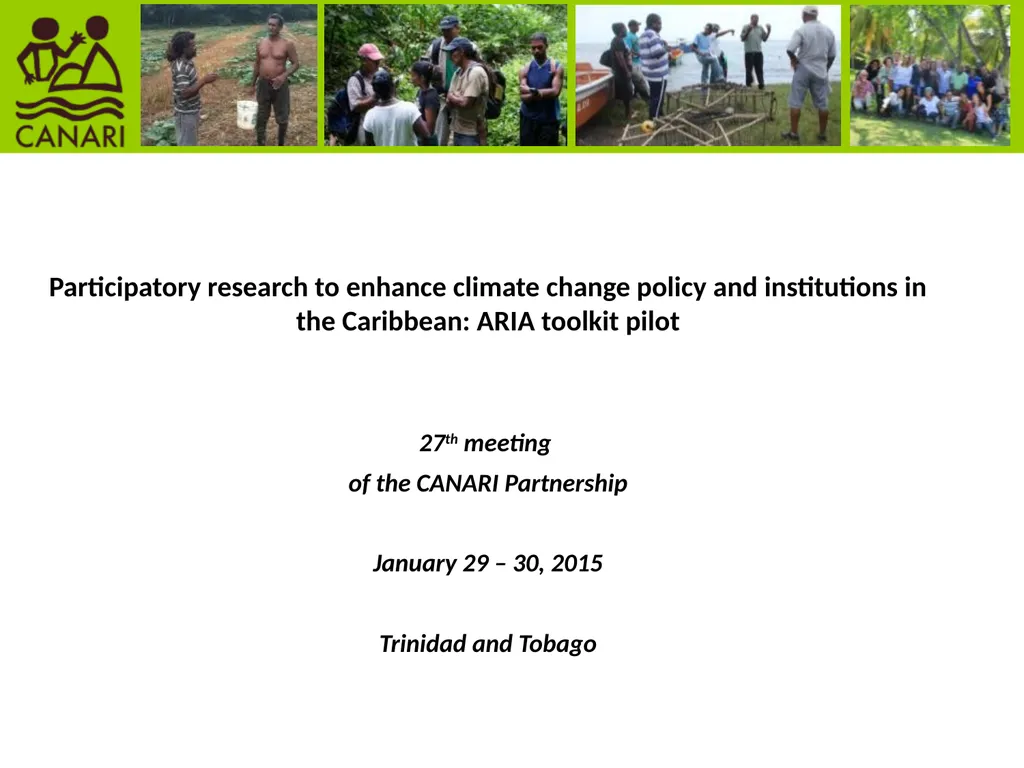
Author : danika-pritchard | Published Date : 2025-06-27
Description: Participatory research to enhance climate change policy and institutions in the Caribbean: ARIA toolkit pilot 27th meeting of the CANARI Partnership January 29 30, 2015 Trinidad and Tobago Introduction 1 year project: January 2013(gotDownload Presentation The PPT/PDF document "" is the property of its rightful owner. Permission is granted to download and print the materials on this website for personal, non-commercial use only, and to display it on your personal computer provided you do not modify the materials and that you retain all copyright notices contained in the materials. By downloading content from our website, you accept the terms of this agreement.
Here is the link to download the presentation.
"Participatory research to enhance climate change"The content belongs to its owner. You may download and print it for personal use, without modification, and keep all copyright notices. By downloading, you agree to these terms.













